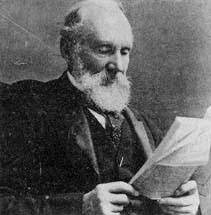William Kelvin-Brief Life Sketch
William Kelvin
William Kelvin-Brief Life Sketch
William Kelvin (William Thomson Kelvin) was an English scientist. He was born on June 26, 1828. After completing his education, Kelvin became a professor of natural science at the University of Glasgow in England at the tender age of 22. He taught and researched for a long period of 53 years from 1846 to 1899. He became famous for inventing the ultimate standard of warmth. This scale is known as ‘Kelvin scale’. He was credited with the successful design and management of electric wiring under the Atlantic Ocean in the telegraph connection between the United States and England.
William Thomson Kelvin died on December 17, 1907. He was a man of unparalleled skill in making accurate and precise scientific instruments. 0 0 0
N.B. The article ‘William Kelvin-Brief Life Sketch’ originally belongs to the book ‘Introduction to World Personalities‘ by Menonim Menonimus.
Books of Composition by M. Menonimus:
- Advertisement Writing
- Amplification Writing
- Note Making
- Paragraph Writing
- Notice Writing
- Passage Comprehension
- The Art of Poster Writing
- The Art of Letter Writing
- Report Writing
- Story Writing
- Substance Writing
- School Essays Part-I
- School Essays Part-II
- School English Grammar Part-I
- School English Grammar Part-II..
Books of S. Story by M. Menonimus:
Books of Biography by M. Menonimus:
- The World Writers-Brief Biographies
- Introduction to World Writers
- Introduction to World Personalities
- Love of Reputed Persons ..
Related Search:








